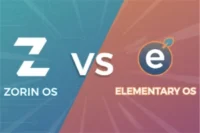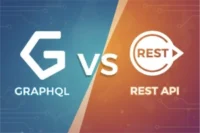Software Developer vs Data Scientist: Which Career is Better?
Published: 10 Mar 2025
Choosing between a Software Developer and Data Scientist career can be challenging, as both fields offer exciting opportunities. Software developers focus on building applications, websites, and systems, while data scientists analyze large datasets to find insights and make predictions.
Each career has different skill requirements, job responsibilities, and salary prospects. In this article, we will explore the key differences between these two careers to help you decide which path is best for you.
Differences between Software Developer and Data Scientist
Let’s discuss all the Comparisons – Software Developer vs Data Scientist in detail:
1. Job Role and Responsibilities
The responsibilities of a software developer and a data scientist different based on their focus areas.
Software Developer:
Software Developers designs, develops, tests, and maintains software applications. Works with programming languages like Java, Python, and JavaScript. Builds and optimizes web and mobile applications, databases, and system software.
Data Scientist:
Data Scientist analyses and interprets large datasets to solve complex problems. Uses tools like Python, SQL, and machine learning algorithms. Uses statistical models, machine learning, and AI to predict trends.
Creates data-driven solutions for business and research applications. Collaborates with business analysts, engineers, and decision-makers. Helps organizations make informed decisions based on data.
2. Required Skills
Both careers require strong technical skills, but they differ in focus.
Software Developer:
Software Developers are skilled in programming languages like Java, C++, and Python. Friendliness with frameworks such as React, Angular, and Django. Strong knowledge of data structures, algorithms, and software architecture.
Experience with APIs, cloud platforms, and DevOps practices. Ability to write efficient, scalable, and secure code.
Data Scientist:
Strong knowledge of data analysis, statistics, and machine learning. Expertise in data visualization tools like Tableau and Matplotlib. Strong programming skills in Python, R, and SQL.
Experience with AI technologies, deep learning, and big data processing. Ability to interpret data and communicate insights effectively.
3. Education and Certifications
Both careers typically require a degree, but the field of study may differ.
Software Developer:
Bachelor’s degree in Computer Science, Software Engineering, or a related field. Certifications like Microsoft Certified: Azure Developer and AWS Certified Developer help. Strong problem-solving skills and hands-on coding experience are essential.
Data Scientist:
A Bachelor’s or Master’s degree in Data Science, Mathematics, Statistics, or Computer Science.
Certifications such as Google Data Analytics, IBM Data Science Professional Certificate, and TensorFlow Developer Certificate provide an advantage. Knowledge of data science methodologies, machine learning, and AI.
4. Tools and Technologies
The tools used in both careers vary based on their applications.
Software Developer:
Uses Integrated Development Environments (IDEs) like Visual Studio, IntelliJ IDEA, and Eclipse. Works with databases such as MySQL, PostgreSQL, and MongoDB. Uses version control systems like Git and GitHub for collaboration.
Develops applications with frameworks and libraries such as React, Angular, and Flask. Works with cloud platforms like AWS, Google Cloud, and Microsoft Azure.
Data Scientist:
Uses Jupiter Notebook, Google Collab, and RStudio for data analysis. Works with big data tools such as Apache Spark and Hadoop. Uses data manipulation libraries like Pandas and NumPy.
Develops AI models using TensorFlow and Scikit-learn. Works with data visualization tools like Tableau, Power BI, and Matplotlib.
5. Salary and Career Growth
Both careers offer competitive salaries, but earnings may depend on experience and location.
Software Developer:
Average salary ranges from $80,000 to $120,000 per year. Career growth leads to roles like Senior Developer, Software Architect, or Engineering Manager. High demand in industries like technology, finance, and healthcare.
Data Scientist:
The average annual salary ranges from $100,000 to $150,000. Career advancement includes roles like Senior Data Scientist, AI Specialist, and Chief Data Officer. Increasing demand in finance, healthcare, research, and AI development.
6. Work Environment
The work environment differs based on the industry and job role.
Software Developer:
Typically works in tech companies, start-ups, or as a freelancer. Collaborates with designers, product managers, and quality assurance teams. Can work in remote, office-based, or hybrid environments. Requires continuous learning to keep up with new technologies.
Data Scientist:
Commonly employed in finance, healthcare, and e-commerce industries. Works with business analysts, AI researchers, and data engineers. Often involved in data-driven decision-making and predictive analytics. May work in corporate offices, research labs, or remote setups.
7. Job Demand and Future Scope
Both careers are growing, but their demand varies across industries.
Software Developer:
High demand due to the continuous need for applications and software solutions. Opportunities in AI, cybersecurity, and mobile app development. More job openings in traditional and emerging tech companies.
Data Scientist:
Rapidly growing demand as organizations focus on data-driven decision-making. Expanding into AI, deep learning, and big data analytics. Increasing importance in fields like finance, healthcare, and marketing analytics.
Quick Comparison Table: Software Developer vs Data Scientist
Sometimes, it is easy to understand things when you look at them side by side. So here’s a quick comparison table to help you clearly see the difference between Software Developer and Data Scientist at a glance.
| Feature | Software Developer | Data Scientist |
| Primary Focus | Building software applications | Analyzing data and creating insights |
| Key Skills | Coding, debugging, software design | Data analysis, statistics, machine learning |
| Common Tools | IDEs, Git, frameworks | Python, R, SQL, data visualization tools |
| Average Salary | $80,000 – $120,000 | $100,000 – $150,000 |
| Job Demand | High demand in all industries | Increasing demand in data-driven industries |
| Career Growth | Senior Developer, Architect | AI Specialist, Chief Data Officer |
| Best For | Those who love coding and problem-solving | Those interested in data and analytics |
Which Career is Right for You?
The best career choice depends on your interests and skills.
Choose Software Development if you love coding, problem-solving, and creating applications. Choose Data Science if you enjoy data analysis, statistics, and predictive modeling.
- Software Development suits individuals who prefer structured programming and application design.
- Data Science is ideal for those who like working with large datasets and AI models.
Both Careers offer high salaries and strong job security, so the decision depends on your passion.
Conclusion
Software Development and Data Scientist are both rewarding careers with high demand in the job market. Software developers focus on building applications, while data scientists analyze data to drive business decisions.
If you enjoy coding and software engineering, a career as a software developer may be the best fit. However, if you have a passion for data, machine learning, and analytics, becoming a data scientist could be the right path. Choose based on your strengths, interests, and career goals.
FAQs about Software Developer and DATA Scientist
Here are some of the most FAQs related to Software Developer vs Data Scientist:
Software Developers create applications, while Data Scientists analyze data to provide insights and predictions.
A degree helps, but many professionals enter these fields through certifications, boot camps, and self-learning.
Data Scientists generally earn more than Software Developers due to the high demand for data skills.
Software Development has a lower learning curve, while Data Science requires strong statistical and analytical skills.
Yes, Software Developers with Python and analytical skills can transition into Data Science with additional learning.
Both careers have strong demand, but Data Science is growing rapidly due to AI and big data trends.
Software Developers work in IT, gaming, and finance, while Data Scientists are needed in healthcare, finance, and e-commerce.
Yes, having skills in both fields can open more career opportunities, especially in AI and automation.
Yes, both require coding, but Software Developers focus on building applications, while Data Scientists focus on data processing.
Both careers offer remote work opportunities, but Software Development is more flexible in terms of work-from-home options.

- Be Respectful
- Stay Relevant
- Stay Positive
- True Feedback
- Encourage Discussion
- Avoid Spamming
- No Fake News
- Don't Copy-Paste
- No Personal Attacks

- Be Respectful
- Stay Relevant
- Stay Positive
- True Feedback
- Encourage Discussion
- Avoid Spamming
- No Fake News
- Don't Copy-Paste
- No Personal Attacks





